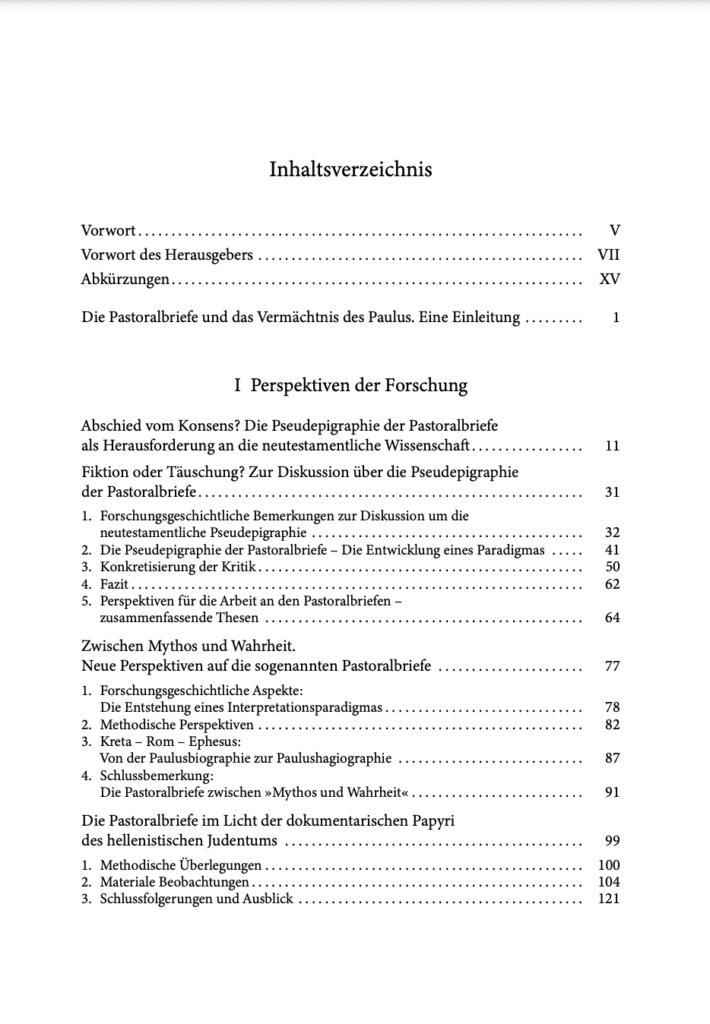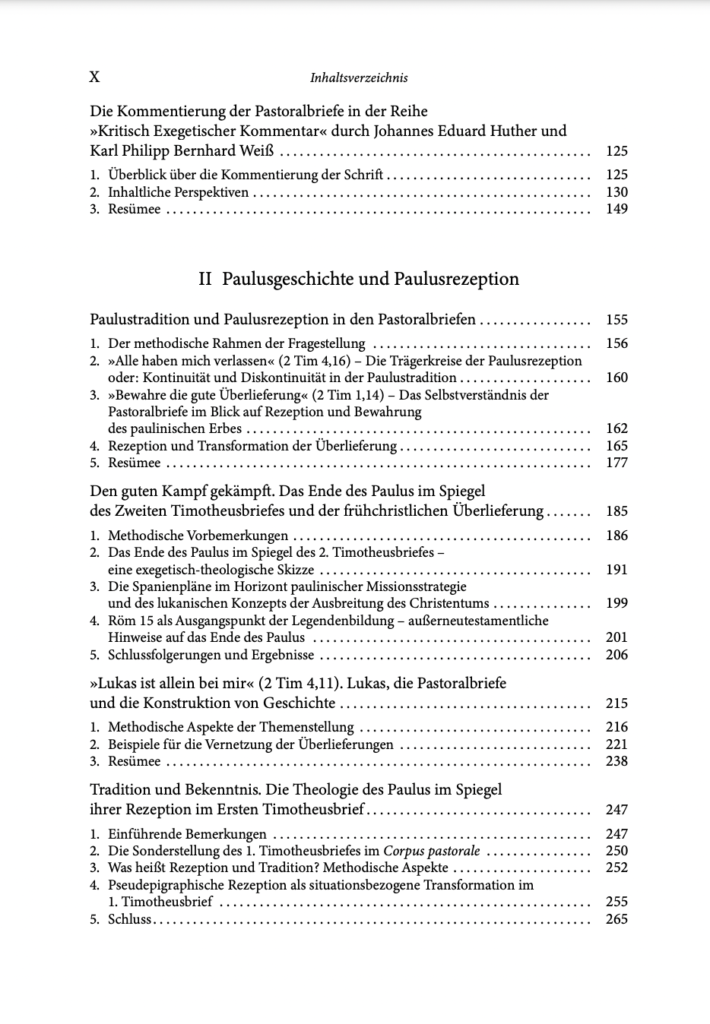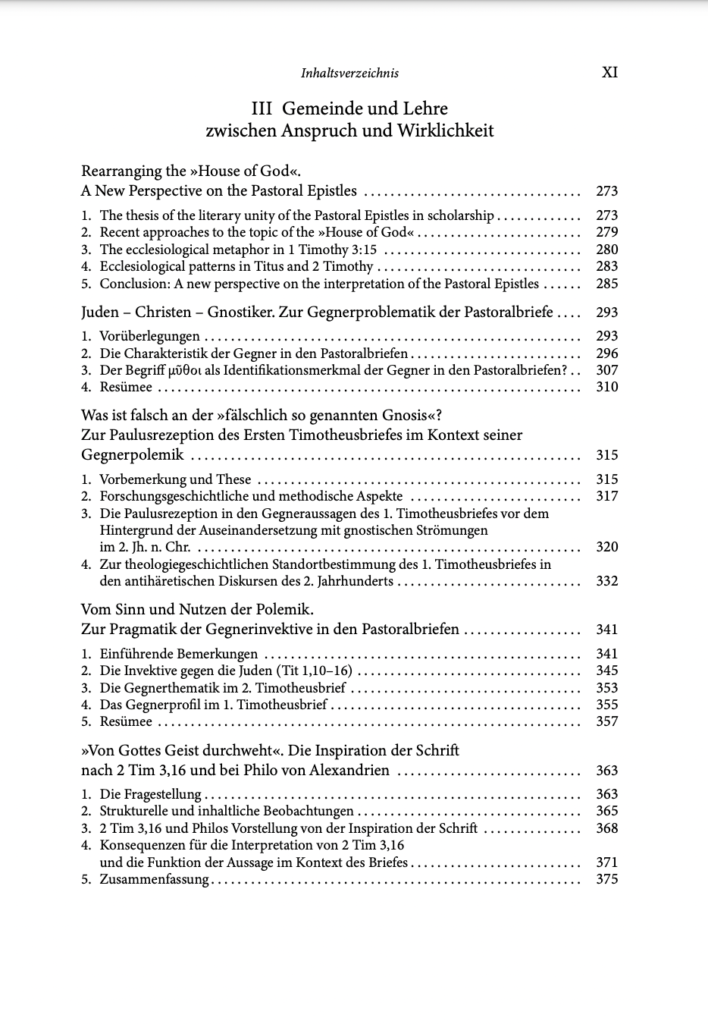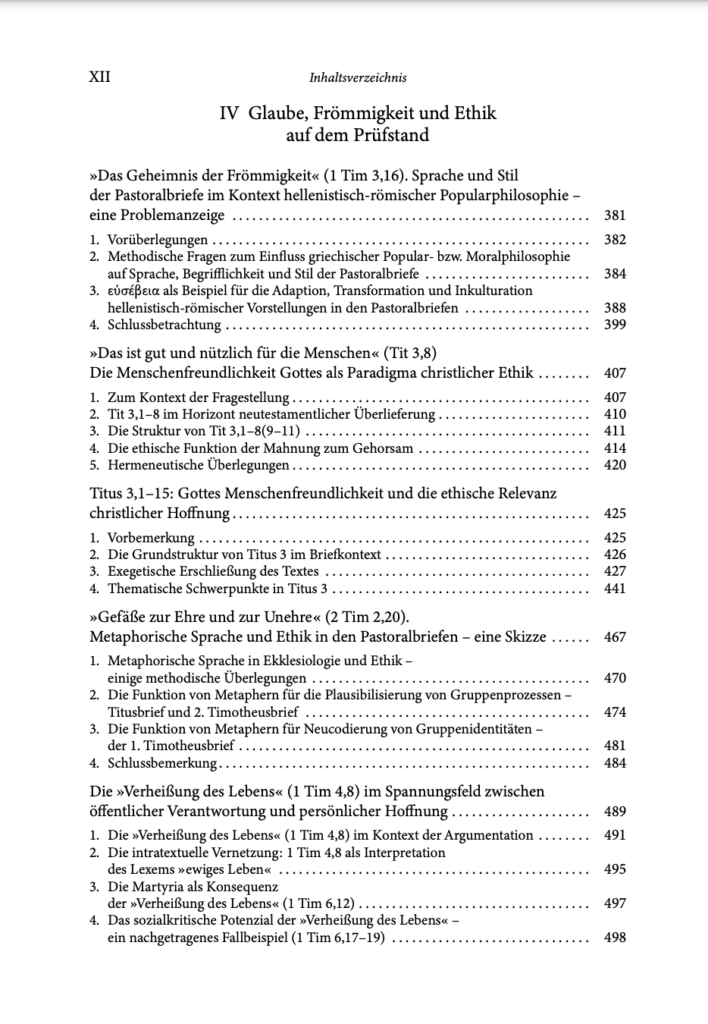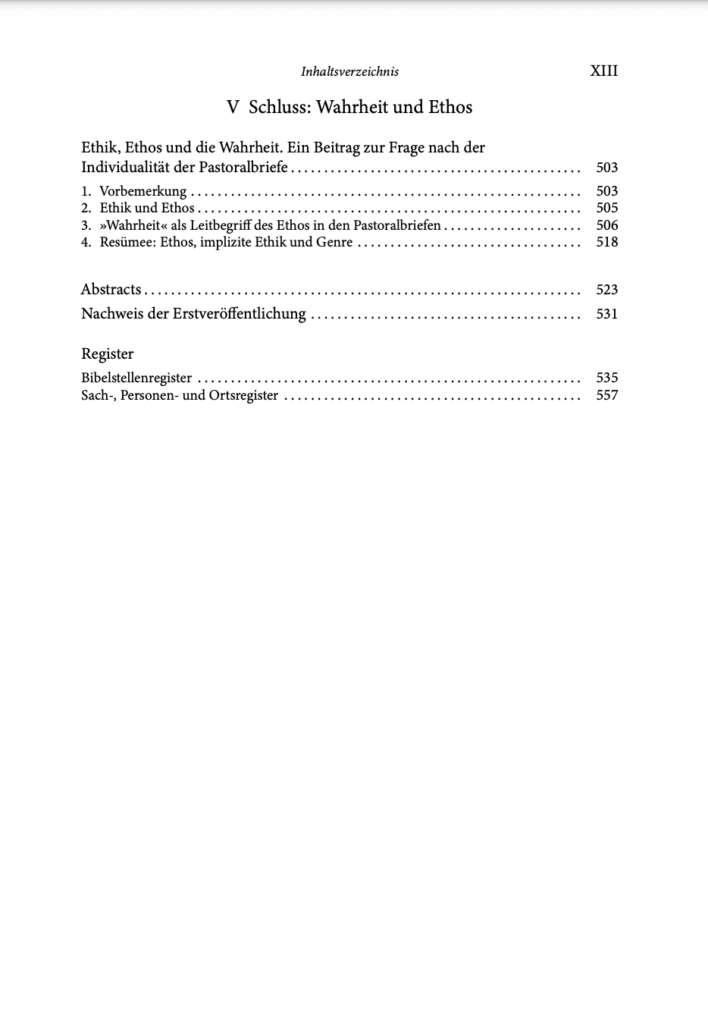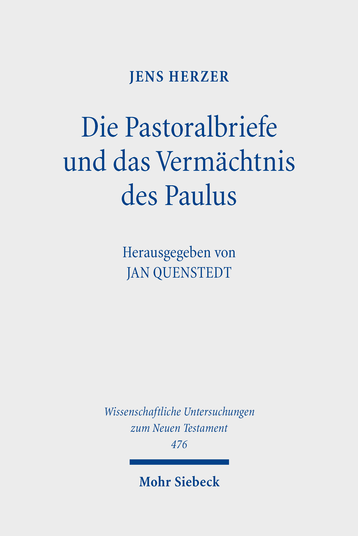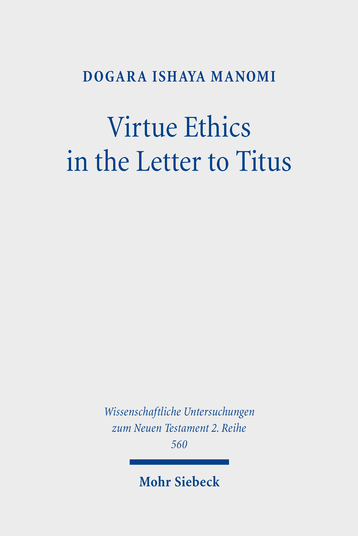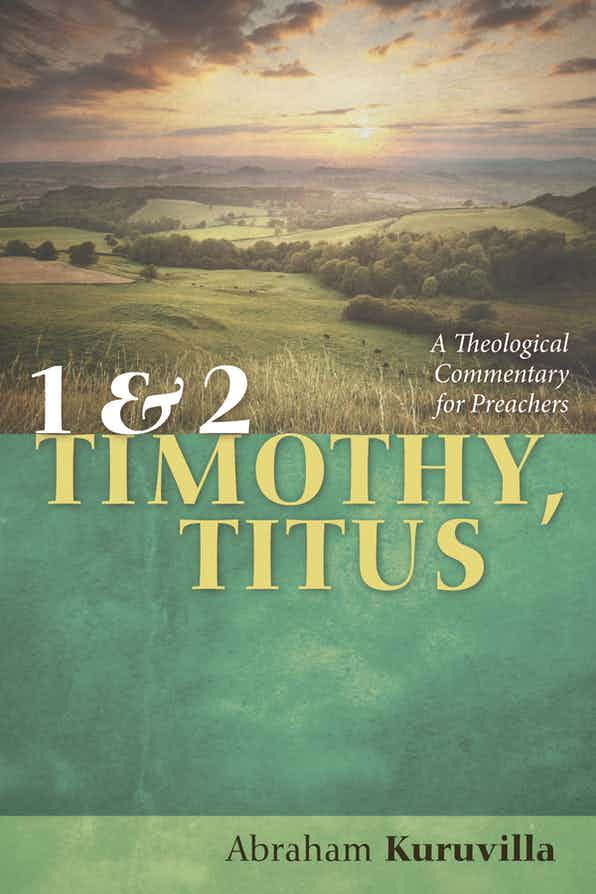An important volume of collected essays on the Pastorals is now available:
Jens Herzer, Die Pastoralbriefe und das Vermächtnis des Paulus: Studien zu den Briefen an Timotheus und Titus [The Pastoral Epistles and Paul’s Legacy: Studies on the Letters to Timothy and Titus]. Edited by Jan Quenstedt. Wissenschaftliche Untersuchungen zum Neuen Testament 476. Tübingen: Mohr Siebeck, 2022.
Jens Herzer has been writing on the Pastorals for nearly twenty years. It is largely his work which has spurred the continuing discussion about reading the letters individually as opposed to corpus-reading them (Michaela Engelmann, Unzertrennliche Drillinge?, a published dissertation completed under Herzer, should also be mentioned here). As he puts it in the volume introduction, “In my view, a decisive methodological prerequisite for an adequate view of the Pastoral Epistles is to dissolve their all too close ‘relationship’ and to perceive them in their own profile” (“Eine entscheidende methodische Voraussetzung für eine angemessene Sicht auf die Pastoralbriefe besteht aus meiner Sicht darin, ihre allzu enge ‘Verwandtschaft’ aufzulösen und die Briefe in ihrem je eigenen Profil wahrzunehmen”) (3).
Herzer’s scholarly literary output vis-à-vis the Pastorals has brought him to the highest rank in terms of sheer number of publications, a circle which includes Raymond Collins, Giuseppe De Virgilio, Michael Gourgues, Luke Timothy Johnson, Abraham Malherbe, Cesare Marcheselli-Casale, I. Howard Marshall, Yann Redalié, Ceslas Spicq, Michael Theobald, Philip Towner, Manabu Tsuji, and Korinna Zamfir. Students of the Pastorals will recognize that most of these scholars have also built upon earlier publications with a commentary on one or more of the letters (Malherbe was working on the Pastorals volume in Hermeneia at the time of his passing, and Tsuji’s Bokkai Shokan should be available soon). Likewise, Herzer is at work on the Pastorals volume in the Theologischer Handkommentar zum Neuen Testament, replacing the volume by Gottfried Holtz (1965; 5th ed., 1992). Indeed, as Herzer notes in the volume introduction [English translation by DeepL], it was his commission to produce this THKNT volume over twenty years ago which led to his various publications on the Pastorals, which in turn will, of course, inform the commentary.
As will be seen from the table of contents at the end of this post, the twenty essays (with one exception) are in German; English-language abstracts are, however, provided at the end of the volume (523–30). All of the essays have been published previously except the last (“Ethik, Ethos und die Wahrheit”), which is slated for publication in the delayed WUNT volume gathering the proceedings of the 2019 “Ethics in Titus” conference. Because the essays have been slightly revised (though in non-substantive ways) for republication, scholarly work should now normally cite them from this volume if possible, not from their original published locations.
Edited volumes of essays on the Pastorals are not unknown, but not common:
- Reimund Bieringer, ed. 2 Timothy and Titus Reconsidered / Der 2. Timotheus- und der Titusbrief in neuem Licht. Colloquium Oecumenicum Paulinum 20. Leuven: Peeters, 2018.
- Giuseppe de Virgilio, ed. Il deposito della fede: Timoteo e Tito. Supplementi alla Rivista Biblica 34. Bologna: Dehoniane, 1998.
- Karl Paul Donfried, ed. 1 Timothy Reconsidered. Colloquium Oecumenicum Paulinum 18. Leuven: Peeters, 2008.
- Andreas J. Köstenberger and Terry L. Wilder, eds. Entrusted with the Gospel: Paul’s Theology in the Pastoral Epistles. Nashville: B&H, 2010.
- Andreas J. Köstenberger and Thomas R. Schreiner, eds. Women in the Church: An Interpretation and Application of 1 Timothy 2:9–15. 3rd ed. Wheaton, IL: Crossway, 2016.
- Ἡ πνευματική παρακαταθήκη τοῦ Ἀποστόλου Παύλου. Ποιμαντικές Ἐπιστολές [The Spiritual Depository of Paul the Apostle: Pastoral Epistles]. Εἰσηγήσεις ΙΑ´ Συνάξεως Ὀρθοδόξων Βιβλικῶν Θεολόγων: Λευκάδα 25–28 Σεπτεμβρίου 2003 (Thessaloniki: privately published, 2004).
- Hans-Ulrich Weidemann and Wilfried Eisele, eds. Ein Meisterschüler: Titus und sein Brief. Michael Theobald zum 60. Gerburtstag. Stuttgarter Bibelstudien 214. Stuttgart: Katholisches Bibelwerk, 2008.
